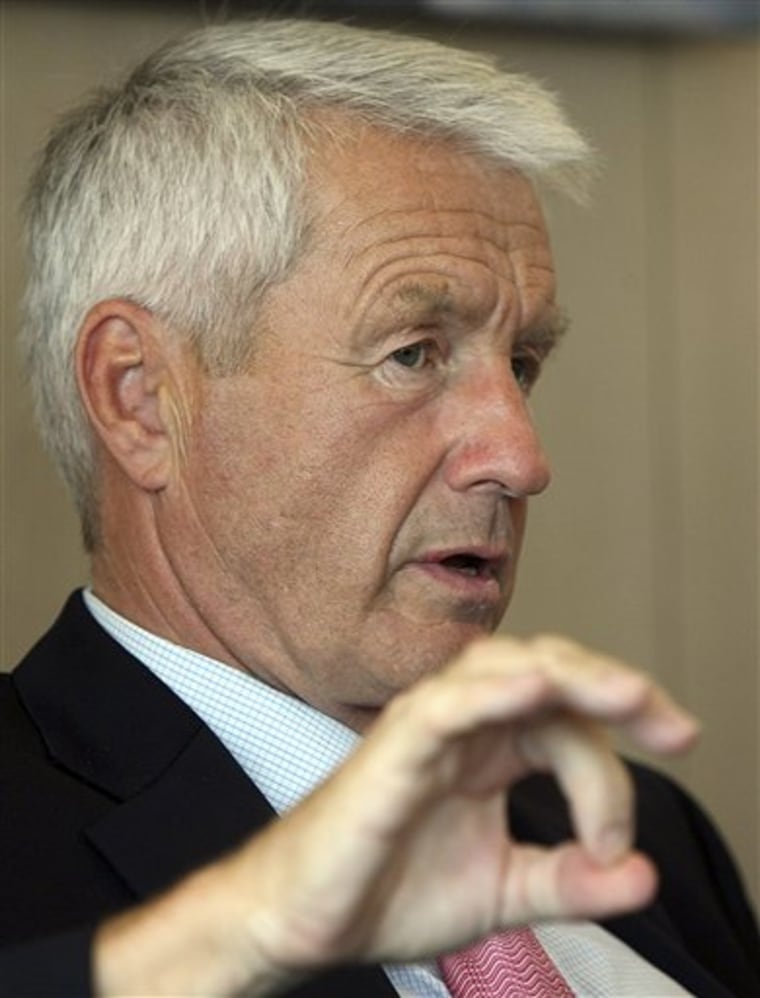This year's Nobel Peace prize winner is "obvious," the chairman of the prize committee says, and he's surprised that "commentators and experts" haven't picked up on it.
With upheaval in the Arab world and Europe's spiraling debt crisis among the top issues in a turbulent year, Thorbjoern Jagland didn't name the much-anticipated winner who will be announced Friday in Oslo.
But in an interview Wednesday with The Associated Press, Jagland did give a few clues into the thinking of the Norwegian Nobel Committee that awards the prize.
The deadline for nominations was Feb. 1, and committee members could add their own suggestions until Feb. 28. Jagland said it was "not necessarily" too late for consideration of leaders of the Arab Spring revolutions, which toppled Tunisia's longtime autocrat in January and then spread from there.
"We saw many of the (Arab Spring) actors at the time, but that doesn't mean that the prize goes in that direction, because there are many other positive developments in the world," he said.
"The most positive development will get the prize," Jagland said. "So I'm a little bit surprised that it has not been already seen by many commentators and experts and all this because for me it's obvious."
A record 241 nominations — 188 individuals and 53 organizations — were submitted for this year's peace prize. Russian human rights activist Svetlana Gannushkina, the secret-spilling group WikiLeaks, and Cuban dissidents are among candidates who have been publicly announced by those who nominated them.
Jagland said the independent, five-member committee decided upon the laureate at its final meeting Friday. But keeping one of the world's biggest annual secrets appeared tough.
Asked if the Arab Spring might be a source of the honoree, he said: "That is one, but there are others too."
Some speculation has centered on the 27-nation European Union, which many consider a peace-building institution. Although Norway is not an EU member, Jagland is a strong supporter of the bloc.
"Yes, of course, but today it's ..." he said, his voice trailing off for 10 seconds of silence before a press handler intervened.
Would it be a big name?
"Not necessarily a big name, but a big mission — something important for the world."
Jagland, a former prime minister of Norway, and the committee have courted controversy with its selections since he became its chairman in 2009. That year, U.S. President Barack Obama won, drawing criticism among some domestic political opponents. In 2010, the prize went to the imprisoned Chinese dissident Liu Xiaobo — a move that sparked fury in Beijing and Chinese retaliation against Norway.
Jagland spoke to the AP from his office at the Council of Europe, the 47-nation body that works to promote democratic principles, shortly before leaving for Oslo.
"For me and the committee, I think it's quite obvious if you look at the world today and see what is happening out there," he said. "What are the major forces pushing the world in the right direction?"
